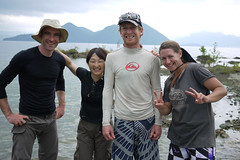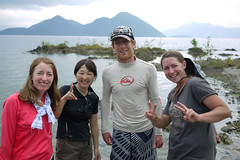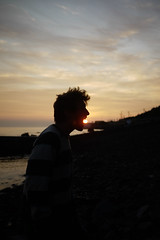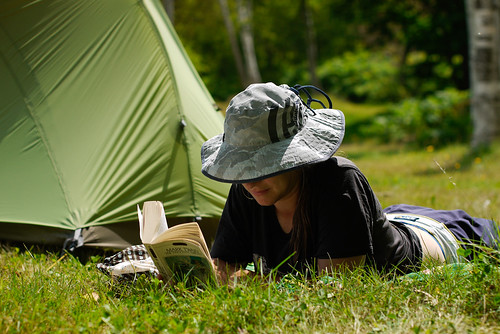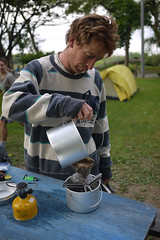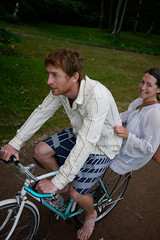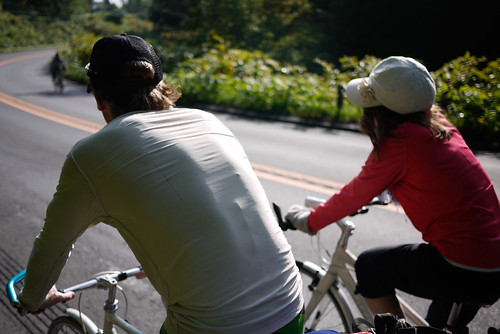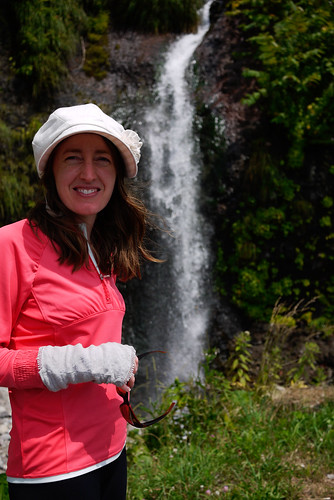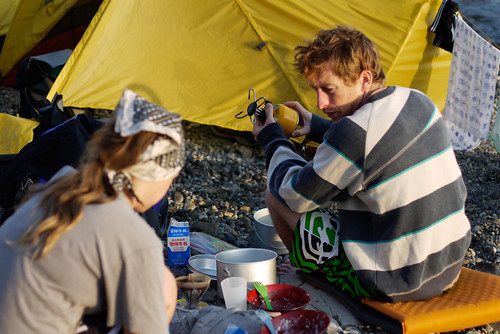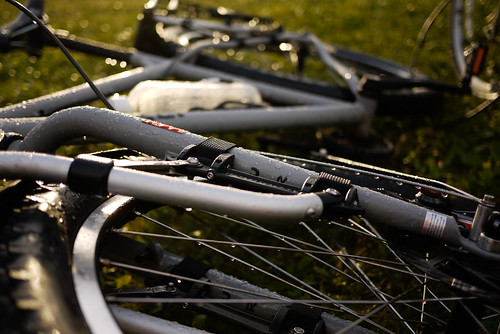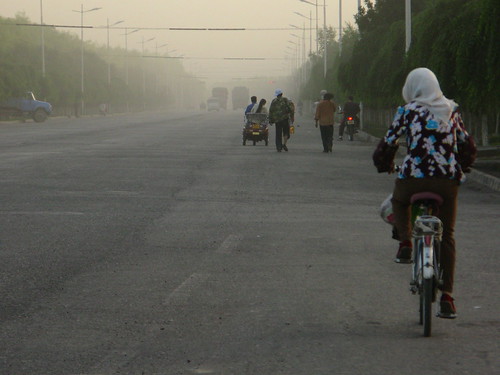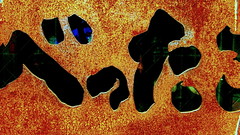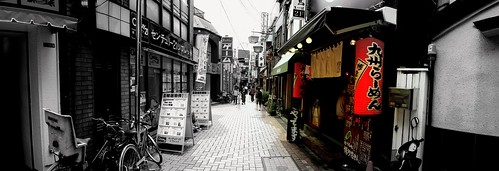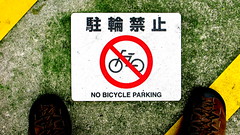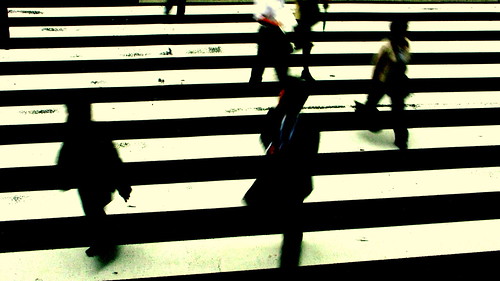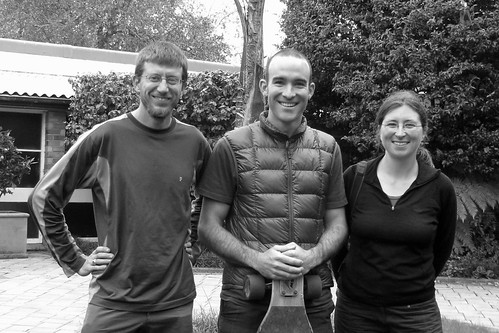In January this year, Andrea Brena, a student from Italy, sent me a sizable list of questions for me to answer as part of a research project he was working on. Before the answers get lost in my inbox forever, here they are.
INTERVIEW
What’s your name?
Robert John Thomson, but people call me Rob.
Where do you come from?
I grew up in Invercargill, New Zealand. Small town at the southern-most tip of New Zealand. Small-town atmosphere, cold, nothing to do except explore the outdoors or drink copious amounts of alcohol; I preferred the former.
When did you start to take long trips?
I have only ever done one long trip. From July 2006 till November 2008. Before then, the longest trip I had ever done was a week long, with a bunch of friends, on mountain bikes, in the middle of nowhere in the South Island of New Zealand.
How did you end up travelling by longboard?
From July 2006 till April 2007, I was cycling on a bicycle from Japan to England. In Tashkent, Uzbekistan, I was wandering around the city visiting different embassies, to apply for visas for onward travel (Central Asia is a bureaucratic nightmare). At that time, I thought that it would be convenient if I had a skateboard on which to quickly move around town (I could take it on public transport etc etc). This got me to thinking about actually travelling between cities on a longboard. A quick web search showed that Dave Cornthwaite (www.davecornthwaite.com) was skating across Australia with a support crew. From there, the seed was planted in my mind. I wanted to do the same, but with no support crew; solo and unsupported. 5 months after Tashkent, I finally arrived in Switzerland, and then at that point decided, as a test, to skate the rest of the way to England. So I sent my bike home to New Zealand, and bought a longboard and a backpack. The 1500km skate from Switzerland to England was a success, and I decided to carry on. I enjoyed the challenge (not only physically but also intellectually ? i.e., how can I make my luggage as lightweight as possible, but still be self-sufficient) and novelty of it. Later on in the trip, the lure of being able to achieve and extend a Guinness World Record was a large motivating factor; it made me feel like I was really doing something on the cusp of human endurance and capability.
Would you tell the most beuatiful experience you had being helped by somebody?
http://14degrees.org/en/?p=865
Which role do people that you met on your way play in your trips?
They are a window into the true nature of the place where I am travelling. You can only get a very surface view of what life is like in any particular location just by looking at the sights as you whizz by on a bus, train, or in my case, a bicycle or skateboard. Most often, the sights you see in the tourist areas or on the outside of people’s homes are a polished presentation of an image people want to present, rather than a true reflection of what they really are, or what their life is really like. Of course, even when a person invites you in to stay, they are also presenting a certain version of themselves to you, the traveller; they are often trying to create a good impression of themselves or their country. But still, you do get to see a different side of your destination when seen through the window of a person’s private life; i.e., home. For example Keith and Mary – http://14degrees.org/en/?p=583 ? showed me a reality of ‘American life’ that was a far cry from the affluence we see on mainstream American television media.
Do you think that the generosity that you met in your travels was because you were travelling in a humble, generous way?
Yes. Definitely. Just the fact that I was on a bicycle or skateboard garnered, it seemed, instant respect and affability. And I can relate to that. The stereotype of criminals is that they will do the least effort for the largest gain (even if that ‘least effort’ entails risk). What I was doing required a herculean effort, with very little gain (at least monetarily), and therefore, at least by that definition, I probably certainly did not come across as a criminal.
Can curiosity be the reason why they help you?
For sure. Someone skating with a large backpack along a highway is not something you see every day. And then once people heard that I was from New Zealand, that was like a final seal of approval: this guy is probably going to be interesting. People love something out of the ordinary (that’s why there’s so much sensational stuff on TV; it sells). And a real live curiosity is always going to be more interesting that TV.
Are people aware of the reasons that move you to this experience? Do you think this could be a factor that brings them towards you or to help you?
For people who helped me in the US, I would just tell them that I was doing it for the adventure of it. I think that most people that invited me in to stay or helped me out understood that concept. As for people who invited me in in developing countries (Central Asia, China etc), I think it was more for the novelty/curiosity factor. Like the time I was invited in in Uzbekistan (http://14degrees.org/en/?p=196) and in China (http://14degrees.org/en/?p=689 and http://14degrees.org/en/?p=690). In the Uzbekistan scenario, I was invited in to stay, and half of the neighbourhood came to visit, and we all had a huge meal together, talking and exchanging stories of life in our respective countries. The same in China. In the US, however, I felt that people were more motivated by their belief in what I was doing.
Is it because people see how much you believe in what you are doing that make them help you?
See above.
Is it because you’re showing that you’re taking in everything (good and bad) of their environment and nothing can stop you?
I think this is a factor, for sure. A human powered traveller is not taking the easy route, and I think people see that.
Are more people helping you on the road without knowing your story or people that know about you from media, like internet, tv, radio and press?
I think only one to two people I met along the road had heard of me before I arrived. A woman who saw me in the news paper invited me to a lunch with a scout group (http://14degrees.org/en/?p=487) and Patrick, who heard me on the radio (http://14degrees.org/en/?p=506). The point is, that most people who helped me along the way had no third-party evidence that I was who I said I was. Some contacts were made through people I had met previously (such as one person calling a friend further along the route).
How many people that helped you ask you money for a meal or any kind of service they gave to you?
None. Except once. In a town called Karakol in Kyrgyzstan. I asked a local for directions to a local hostel, and he said ‘I will tell you if you give me money.’ I was tired and irritable, and refused, and just carried on and found the place by myself (http://14degrees.org/en/?p=140).
Did you ever offer anything to them?
No. I gave the family in Uzbekistan 100RMB (Chinese money; about 10 Euro) as a souvenir, but even that felt strange. That is to say, it felt like an insult to their hospitality to offer money. For me this is a bit of a moral dilemma. You see, the less money I part with on a trip, the longer I can travel for. My 2.5 year journey cost about US$15,000. That is very cheap living. And what’s more, that US$15,000 was my life savings. I didn’t have any extra. So really, in a way, I didn’t have any money to spare, and every chance I had to save money was helpful. But then again, travelling itself is an absolute luxury. As a (relatively) rich Westerner I had a choice to travel. Most of those people I stayed with in developing countries will never have the opportunity to have even close to US$15,000 in savings. I wonder how many of them will earn that much gross income in their entire lives, even. This is something I struggled with, and have come to an awkward compromise where I figure that the value of my journey is in the fact that many people followed my journey on my blog, and learned something new about the world and humanity.
Have you noticed if their kind attitude is just towards you or also towards people who live around them?
I definitely got preferential treatment. But this is understandable. I found that when I met a stranger meet under jovial and novel circumstances, both parties (me and the stranger) presented only the very best parts of ourselves to each other. This is understandable. People want to be thought of as nice and good and likeable. As people get to know each other better, a more realistic vision of each other forms. They get to know the good and the bad. Life becomes…normal. And not every day can be a celebration, which is what it felt like when I was invited into someone’s home. A celebration for the intrepid explorer. Fun, novel, a hero (in that I was doing something that many people wish they could do).
Would you do the same, seeing a foreigner on the street and bring him to the home of your family?
When it comes to family, it becomes more complicated. Through my experiences, I personally have become very comfortable with trusting strangers. To the extent that if I saw a person cycling or on some kind of an adventure, and hearing something about their story, I would probably invite them to stay or offer some kind of assistance. My wife, however, is more cautious, which is great; it creates balance, some would say. So I think that my journey has made me more trusting. Some might say recklessly trusting, but I think that how you view trust is dependent on many things; your upbringing, experiences, personality etc etc.
Have your physical conditions (bad or good, in need or not) had an effect on the generousity ofthe people who helped you?
I think that some people understand that a young person on an adventure is always going to appreciate some support, so they are inclined to help. There are not many millionaire 25 year-olds cycling or skateboarding around the world. Usually they have given up the security of a job and income for the pursuit of adventure and travel. So by default, they are poor. In terms of actual sickness or tiredness, I think the family that let me stay with them in Texas appreciated that I needed rest (http://14degrees.org/en/?p=863), so I ended up staying about 5 days with them. I have, however, been taken advantage of when I was sick. It was in Turkmenistan, and I was staying at a cheap hotel and I was very sick. I had a 40 degree fever. I had to change some money to buy some food and medicine, so the hotel staff changed it for me from USD to Turkmen money. It was not until the next day when I had left, I realised that they had short-changed me.
Is your way of travelling attracting people to come towards you?
Yes. Like I said above, it is the novelty factor, I think.
How do you see the kindness of people? What is your view of it?
My personal philosophy is that the kindness I experienced is the way that we are supposed to be. It is the way we were born, in a way. But over a life time of watching and reading news that, by necessity of the medium, reports only the sensational and scary, we end up believing that the world is a place not to be trusted. We end up having a default setting in our brain that says that all strangers are guilty criminals until proven otherwise. The people who showed kindness to me are beautiful examples of what happens when we choose to believe that the narrative portrayed in mass media is not intended to be a narrative that says ‘this is what humans are’. We need to realise that it is a narrative that shows a part of human nature. A part that is, in my view, a very miniscule one.






